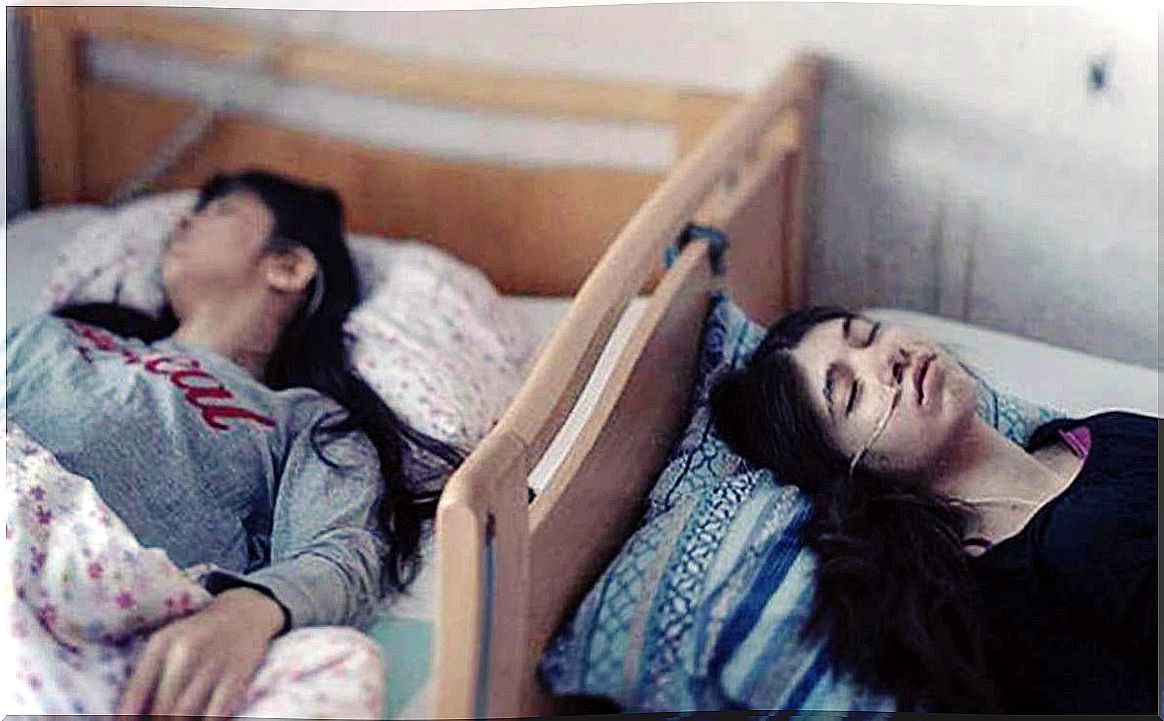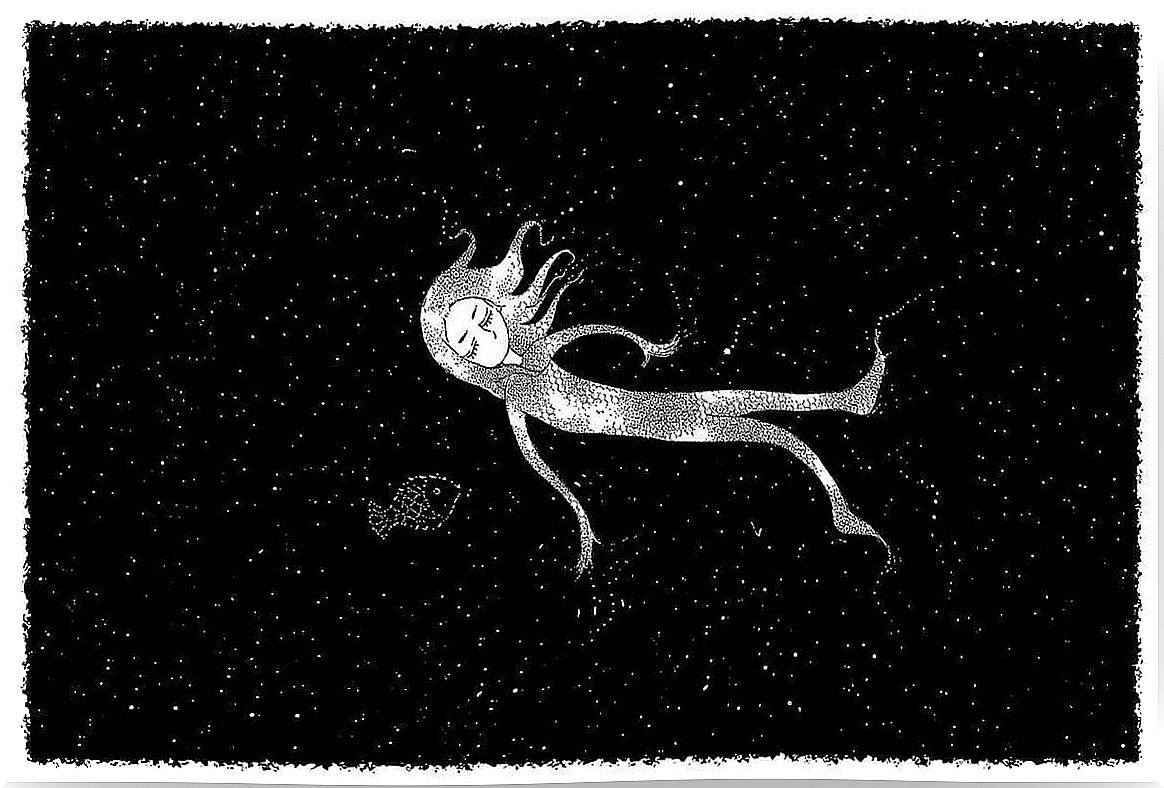The Resignation Syndrome, A Mysterious Disease

Resignation syndrome defines a rare psychiatric condition. It affects children and adolescents who carry traumatic experiences and migratory experiences behind them. It usually begins with a progressive social withdrawal until, little by little, they go from depression to absolute catatonia. They stop reacting to the environment and fall into a vegetative state.
The image could not be more striking as well as bleak. Today, the cases of sisters Djeneta and Ibadeta are well known. The first has been bedridden for two years, the second for six. Both, like the vast majority of children who suffer from this rare reality, live in Sweden in refugee situations.
They are tube fed, they wear diapers and they are like little Snow White left in a deep sleep from which they do not wish or cannot wake up. Their minds, perhaps too wounded by all the experiences they have felt and seen, have disconnected from the conscious world to seek a second, deeper and more hermetic refuge.

What does the resignation syndrome consist of?
The resignation syndrome was described for the first time in 1990. For some unknown reason, Sweden began to receive the case of refugee children who were completely immobile, unable to communicate and in such a severe state of withdrawal that they had to be tube fed. From then to the present, more than 500 patients have already been reported.
It is true that throughout these 30 years there is no lack of incredulous voices that doubt the veracity of this condition. Moreover, for a time the possibility that these children were pretending that dissociative state under pressure from their parents was considered. The reason? To get residence permits. Now, this phenomenon appeared again in Australia in 2013.
Nauru is a small island in the Pacific where there are several immigration detention centers. Here, similar cases have appeared since. Dr Louise Newman, a professor of psychiatry at the University of Melbourne and coordinator of the advocacy group Doctors for Justice, defined resignation syndrome as a very severe withdrawal state experienced by deeply traumatized immigrant children.
Resignation syndrome what are the symptoms?
As we have already pointed out, the resignation syndrome appears only in children and adolescents who are in the process of migration. A good part of them come from very particular geographic and ethnic groups. In the 90s, for example, almost all the little ones came from the Balkans. Now, Yazidis abound, a community hailing from areas like Iraq, Iran, Turkey and Syria.
There are also cases of unaccompanied children from Africa. Thus, something that is usually appreciated is that this phenomenon does not appear as soon as it arrives at the immigration centers in the host countries. In many cases, as in Sweden, children can even begin their schooling, begin to master the language and then begin to manifest the following symptoms:
- At one point, they start to be irritable and lose the desire to play, go to school, etc.
- A depressive process begins in which dejection and sadness lead to lack of communication and exhaustion.
- Finally, they stop moving, eating and physiological incontinence soon appears.
- Resignation syndrome leaves children and adolescents bedridden. To keep them alive, they proceed to tube feeding.
These states can last for years, requiring medical assistance and constant supervision to ensure their survival.
What is the cause?
In early 2020 the Swedish medical authorities published a new report. In it, they indicated that they did not know the causes that explain the resignation syndrome. However, many psychologists and psychiatrists prefer to recognize this syndrome as a form of severe major depressive disorder with psychotic symptoms or catatonia or as a dissociation conversion disorder.
So far, many of the studies available, such as those published in the journal Frontiers in Psychology , cannot reach any conclusion. Today several possibilities are being considered:
- It is a disorder that appears only in children who have suffered the drama of immigration.
- All of them have had traumatic experiences in their countries of origin.
- However, once they reach the host countries, far from cushioning the trauma, it intensifies.
- Within a few months or years of arriving in these reception areas or refugee camps, they are overcome by a deep sense of hopelessness. Somehow their minds assume that nothing is going to get better.
- Likewise, in many cases, psychological problems are also seen in the children’s parents themselves.
In these contexts, the little ones give up physically and psychologically. They resign themselves and are left in an overwhelming limbo of withdrawal and loneliness.

Treatments and strategies
In Sweden they created specific homes for children with resignation syndrome. It is known that these catatonic states can last about 2 years. The strategy that seems to work is to give them a safe physical space in which there is no memory associated with their past. Thus, to the nutritional support itself, intravenous rehydration and monitoring of kidney functions, a psychological program is added.
In these centers there is no talk of war, or immigration and in fact they are even temporarily separated from their families. What therapists do is revive all your senses (smells, touch, tastes, sounds …). It does not matter, for example, that they are tube fed. Various types of food are sat and brought to them so they can smell it.
It is a long and demanding process with which to revive children and adolescents through a scenario in which they feel calm and safe. The most important thing in all cases is to get them to regain hope, that life for them makes sense again.
Later, and once they wake up and go back to fending for themselves, we proceed to the family approach. They are undoubtedly very complex clinical realities that are still under study. Be that as it may, what social organizations demand is to reformulate the refugee asylum policy so that children receive immediate psychological assistance.









